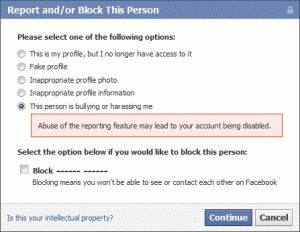Apr
2016
“Better Online Living through Content Moderation”
 In this article, Melissa King talks about how people who suffer from PTSD or users who want to make their “online experiences” less irritable have every right to content control features. Critics of content control features believe that people like this are “too sensitive” and they should be able to deal with whatever comes from these online experiences. Despite their opinions, the author states how the content control features are very helpful in eliminating any anxiety attacks. The author then goes on to discuss computer-chair psychology and how exposure therapy can “inure an individual to these triggers and lesson the disruptions they can cause”, but it is more harmful than helpful to the individual in this case of anxiety. In this case of the exposure therapy “trauma is magnified rather than reduced when faced with triggering content”, therefore content exposure should be controlled. She then talks about how blocklists have come to rise and how many people feel they are being “defamed” when added to the blocklist. King states that these arguments fail to acknowledge “how vicious and pervasive online harassment can be” and it is always the right of the victim to take steps to protect themselves. At the end of the article the author talks about how women suffer greatly from these attacks and there is an issue of sexism. She concludes that with issues like sexism and online bullying that hold great evidence of PTSD, people should be able to control their online experience.
In this article, Melissa King talks about how people who suffer from PTSD or users who want to make their “online experiences” less irritable have every right to content control features. Critics of content control features believe that people like this are “too sensitive” and they should be able to deal with whatever comes from these online experiences. Despite their opinions, the author states how the content control features are very helpful in eliminating any anxiety attacks. The author then goes on to discuss computer-chair psychology and how exposure therapy can “inure an individual to these triggers and lesson the disruptions they can cause”, but it is more harmful than helpful to the individual in this case of anxiety. In this case of the exposure therapy “trauma is magnified rather than reduced when faced with triggering content”, therefore content exposure should be controlled. She then talks about how blocklists have come to rise and how many people feel they are being “defamed” when added to the blocklist. King states that these arguments fail to acknowledge “how vicious and pervasive online harassment can be” and it is always the right of the victim to take steps to protect themselves. At the end of the article the author talks about how women suffer greatly from these attacks and there is an issue of sexism. She concludes that with issues like sexism and online bullying that hold great evidence of PTSD, people should be able to control their online experience.